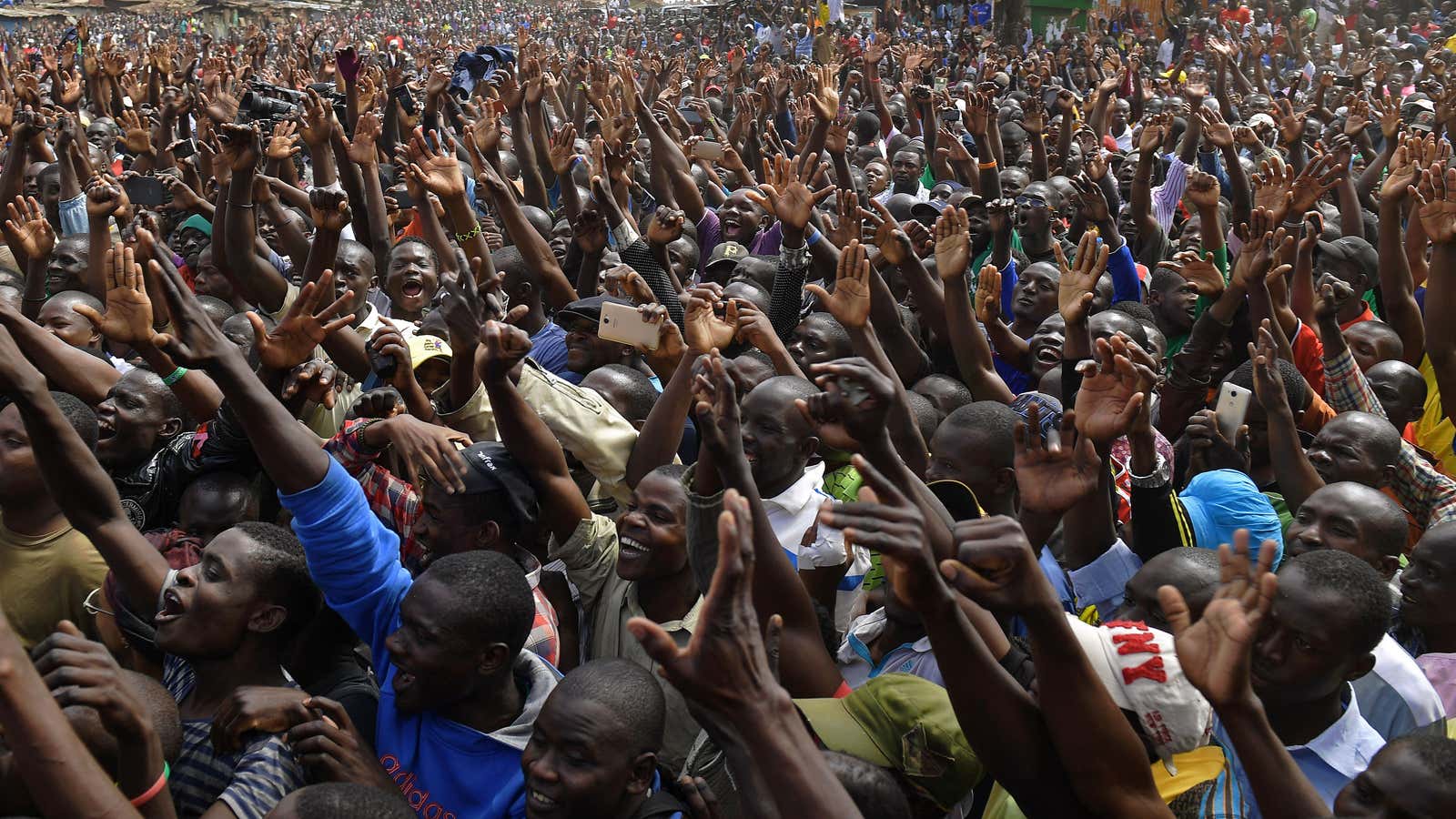Kenya is in the midst of a high-inflation era with a rising cost of living, but one thing in particular doesn’t seem to have suffered much from people’s dwindling incomes: alcohol sales.
One week to the Aug. 9 election, data published by the East African Breweries Limited (EABL) which operates in Kenya, Uganda and Tanzania show that out of the $1 billion revenue it made in the financial year ending on June 30, 68% of it or $700 million came from Kenya.
Revenue from alcohol sales in Kenya grew by 30% in the past year, compared to 24% in Uganda and 21% in Tanzania, which each account for 18% and 14% in the company’s revenue.
Campaign funds boosting alcohol sales?
One hypothesis being put forward by some is that some of the campaign funding used to entice voters, could be a partial driver of increased alcohol sales.
Last October, the Independent Electoral and Boundaries Commission (IEBC) removed restrictions on the maximum amount of money to be spent on campaigns, allowing politicians to dish out more cash to voters, some of which might have been spent on entertainment even during the harsh and uncertain economic times.
Last week, interior minister Fred Matiang’i said the reason why banks in the country are experiencing a scarcity of small denomination notes was because politicians have been withdrawing them in huge volumes to bribe voters.
Prior to the IEBC’s October lift of spending restrictions, a presidential candidate was allowed to spend up to $40 million in campaigns while political party budgets could not go beyond $170 million. Individual financing of a presidential campaign was capped at $8 million while the maximum spend on county seats was $1 million.
“People have unlimited freedom to spend money. Unfortunately, money will play a bigger role. There is no regulation, they just use money the way they want,” IEBC commissioner Boya Molu said at the time.
In April, the Central Bank of Kenya (CBK) reported that cash circulating outside banks hit a four-month high of $2.1 billion due to uncontrolled political campaign spending. Politicians are known to spend huge amounts in bars sometimes buying thousands of crates of beer and brand them with their campaign messages.
Bar owners that spoke to Quartz say they have been forced to close late in the night ahead of the elections in previous months as more revelers flock to the bars to drink and discuss politics.
Alcohol business has slowed over election outcome uncertainty
“Business was booming till June. Sales slowed down in July and this month mainly due to the uncertainty over the outcome of the elections. People are cautious now about spending because of the current political rhetoric. They are saving to spend after elections when things calm [down],” said Stephen Mburu, the manager at Club Legend in Nairobi.
EABL’s commercial director Joel Kamau said while political campaigns usually contribute to the company’s earnings, it has not been the case this year, and most of its revenue has been driven by e-commerce and last October’s re-opening of the economy.
“Politics has not brought us a lot of money this year. But we created an e-commerce platform where consumers would purchase alcohol from home during the pandemic. But when the nationwide curfew was lifted, we saw a huge recovery of bottled beer business as people started spending more time in bars,” he told Quartz.
